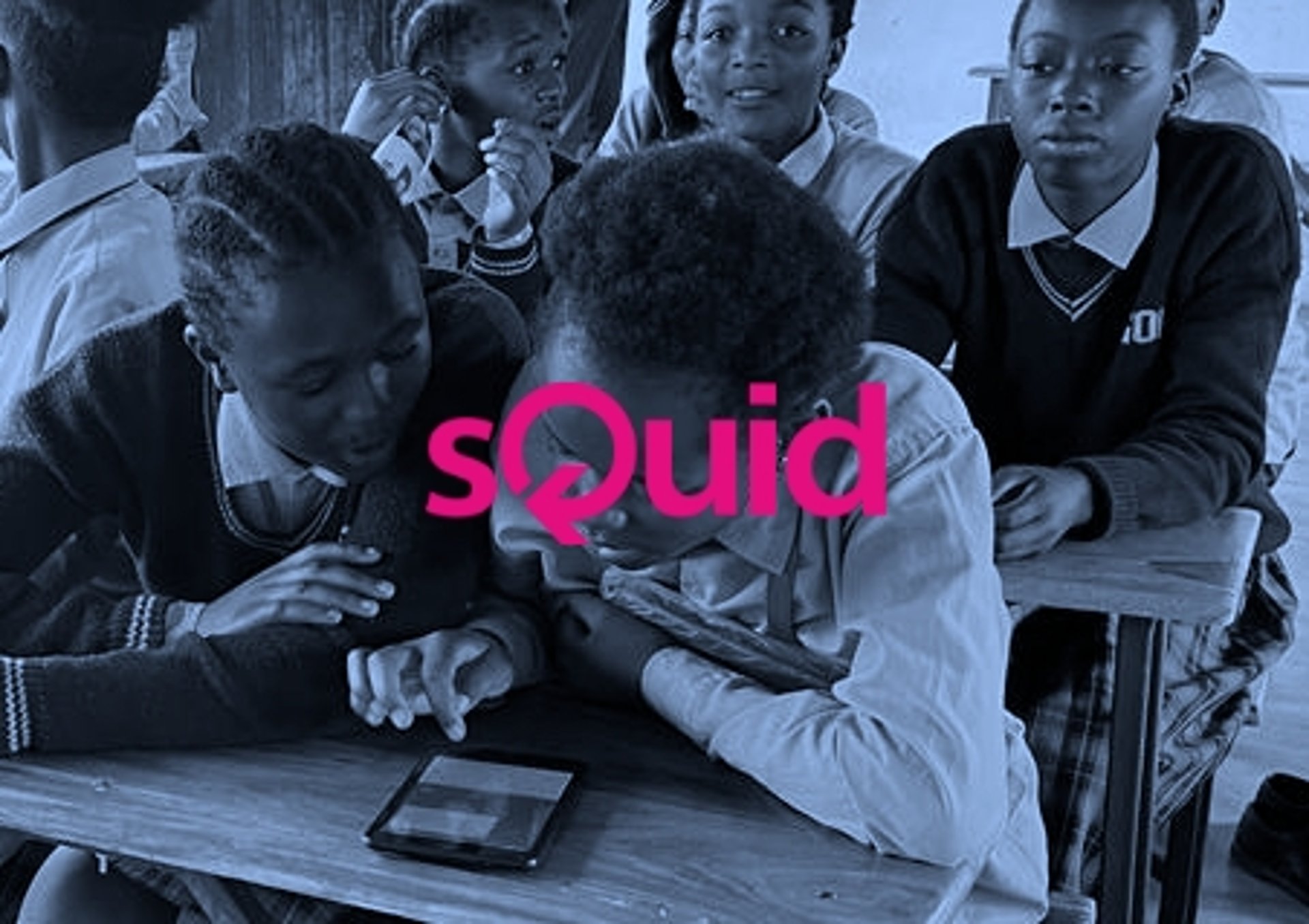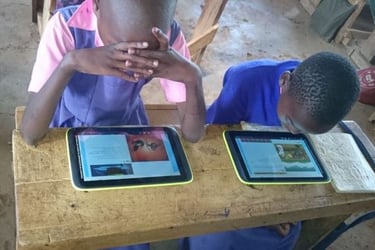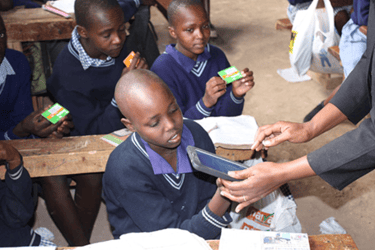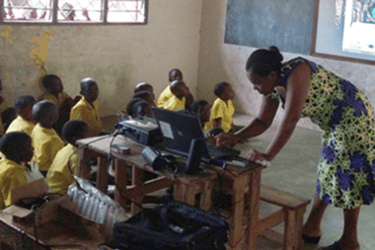
sQuid
sQuid is a transactional platform that facilitates payments, attendance reporting for schools, and access to e-learning solutions in marginalized communities, with a focus on Sub-Saharan Africa.
Why sQuid is our partner
sQuid has extensive experience in humanitarian programme design and in running large scale payment and educational initiatives in Africa for NGO and Government programmes. sQuid brings partnership relationships with the UN, Save the Children, World Bank, Global Partnership for Education and others to deliver digital services.
One program, iMlango has been working in Kenya in 205 primary schools across four highly marginalized communities. The majority of schools are located in rural or semi-urban settings and have impacted 78,864 girls and 79,830 boys. Other sQuid sponsored programs have included digital educational activities in Zambia and Somalia reaching more than 30,000 students.
Specifically, sQuid has expertise in:
Delivering high-speed broadband connectivity to schools in marginalized areas
Individualised digital learning content for literacy and maths;
Training and support to teachers to integrate ICT into schools’ learning processes
Electronic attendance monitoring
Incentivises that encourage families to send their daughters to school
Real-time project monitoring and measurement.







sQuid & R.E.A.L. Reader
sQuid’s extensive experience in schools in Sub-Sahara Africa supported by its relationships with Ministries of Education, makes the company an ideal partner to test and scale the R.E.A.L. Reader tool in the world’s fastest growing population areas with the most students at risk of illiteracy.
By agreement with the Literacy and Language Institute (LLI), sQuid has agreed to provide:
An e-learning platform with rostering to launch the program that has already been demonstrated to have worked with over 250,000 students in schools throughout Africa
On-the-ground testing in highly marginalized schools in Sub-Sahara Africa with low-bandwidth to assure the program works in all environments and contexts
Training for teachers so early implementation is conducted as intended, with recommendations for teachers to assure success at scale
Coordination with Ministries of Education to assure the program is widely supported


The Language and Learning Institute is an educational program of Global Action Platform, a 501c3 non-profit organization. Funding for the L&L Institute is tax deductible to the extent provided by the law and is applied toward ongoing program development and services to the public
Global Action Platform | EIN 20-8691236
© Copyright - 2025 | Literacy & Language Institute | A Project of the Global Action Platform 501(c)(3)
